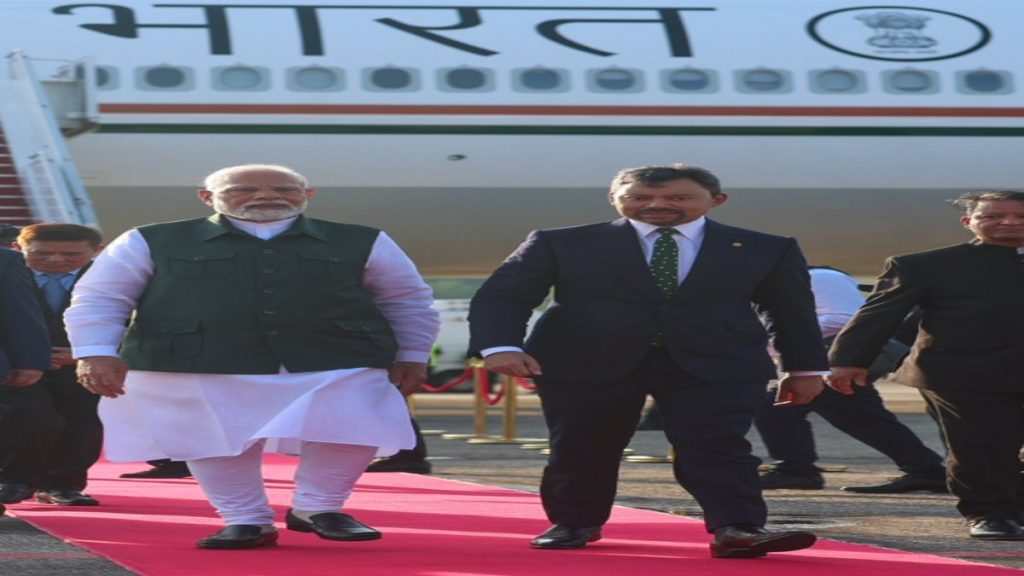Singapore: Prime Minister Narendra Modi’s upcoming visit to Singapore is expected to deepen the ties between India and the South East Asian country and set the stage to take the relationship to a new era, according to Indian envoy to Singapore.
Talking to ANI on Tuesday, the Indian High Commissioner to Singapore Shilpak Ambule said that discussions during the India-Singapore Ministerial Roundtable (ISMR) held on August 27 have set the agenda for the relationship between the two countries, which will now consolidated and cemented during Prime Minister Narendra Modi’s visit.
STORY | Time ripe for India-Singapore bilateral relations to raise to next level: External Affairs Minister S Jaishankarhttps://t.co/d2IAezGszm pic.twitter.com/TrX6OMDrUW
— Press Trust of India (@PTI_News) September 3, 2024
“It is a very important visit happening very early on in Prime Minister Modi’s third tenure. It is also happening very early on in Prime Minister Lawrence Wong’s tenure. It gives us a good opportunity to set the stage to take our relationships to a newer level and newer heights. So that is the whole kind of purpose of this visit,” Ambule said.
About the agenda of the trade and investment ties to be discussed during PM’s meetings with the President, the Prime Minister and important ministers in Singapore, Ambule said that apart from trade and investment, new contemporary areas like green technology and, sustainability will be discussed.
“We had the India Singapore ministerial roundtable last week where four ministers on our side… were present and there were six ministers from the Singaporean side. They set the agenda for the relationship and that is the agenda which will be consolidated now and cemented during Prime Minister Narendra Modi’s visit. Of course, trade and investment form an important part of it, but apart from that, new contemporary areas like green technology, sustainability, connectivity, advanced manufacturing skills and health all will be discussed,” he said.
The envoy to Singapore said that trade and investment is expected to grow further. “Bilateral trade has more than doubled in the last ten years. Our intention is to take it even further. We also combine it with investments. Singapore is the largest source of foreign direct investment in India. So if you take the basket of trade and investment together, they will only grow up and further improve as we go on,” Ambule said.
He added that India is encouraging Singapore to invest in the emerging sectors in India, like logistics, warehousing, commercial real estate.
“The largest source of FDI into India, with FDI equity inflows, it stood around USD 71.774 billion. Yeah, FDI is an important part of the investment, and we are encouraging more and more Singaporean companies, holding companies, funds to invest in the emerging sectors in India, like logistics, warehousing, commercial real estate,” he said.
Singapore is India’s largest trade partner in Asia and last year, the bilateral trade stood at USD 36.6 billion. Prime Minister is visiting Singapore after nearly six years.
In a special briefing ahead of the Prime Minister’s visit, Jaideep Mazumdar, Secretary (East) said two countries have a dynamic Strategic Partnership and ties have evolved. It encompassing diverse areas from our shared history and people to people ties, which form an important link between the two nations.
“Our trade and investment flows have shown a steady growth. We have robust defence cooperation and growing exchanges in culture and education and we have identified new anchors of our partnership under the India-Singapore Ministerial Roundtable Framework,” the MEA official said.
The visit is taking place in the light of the 60th anniversary of diplomatic relations to be celebrated in 2025, which will mark the 10th year of India’s Strategic Partnership with Singapore.
Singapore is India’s largest trade partner in ASEAN and it is a leading source of foreign direct investment. Singapore is India’s sixth largest trade partner worldwide and the largest source of FDI during the last financial year. Investments have also been very large since 2000 till now we have had cumulative FDI of about 160 billion US dollars.

